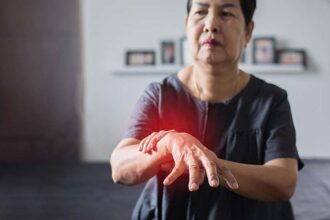Posted: 12/8/2015 10:25 AM by
Interim HealthCare
Falls can be a common, but dangerous occurrence for the elderly. A fall is defined by medical professionals as any outside force that causes a person to have an unexpected or accidental land on the ground. Not to be confused with falls resulting from a loss of consciousness, falls are a major cause of brain injuries in the elderly, and the number one cause of hospital admissions. And the simple truth is, the older a person is, the more likely that a fall may result in death.
Because of this, it is important to know the risk factors for falls and take preventative measures. Some risk factors include:
Muscle weakness in the lower body
Maintaining muscle strength is key in preventing falls in your elderly loved one.
Home hazards
Falls can happen anywhere, but are more common in the home. Anything can become a home hazard. Steps, a piece of furniture, rugs, lack of stair handrails and floor clutter are just a few examples.
Poor reflexes
Your loved one’s reflexes are probably slower than what they used to be. Slower or poor reflexes will undoubtedly increase their chances of a fall.
Poor balance
There are many things that contribute to poor balance in the elderly. Medical conditions, side effects from medication and a lack of physical activity can all be a factor in poor balance and can increase the risk of a fall.
Poor vision
Causes of poor or failing vision can range from poor lighting in your home to glaucoma and cataracts. Whatever the cause, it is important to aid your elderly loved one’s ability to see. A lack of depth perception can also increase the risk of falls.
Painful feet
Ensure that your loved one is wearing proper footwear. Foot pain caused from unsafe footwear will increase their chances of falling.
Medical reasons
Medical condition and side effects from medication can also add to your loved one’s risk of falls. Conditions such as diabetes, poor circulation, a significant drop in blood pressure and dizziness are some examples.
Confusion
Waking up disoriented is common for some, but can be even more so for the elderly. Although there can be many causes for this, whatever the cause, confusion of this kind can lead to falls.
Knowing the risk factors may help you ensure a safer environment for your elderly loved one. Be sure to contact a medical professional if you have concern that a fall is the indication of a more serious condition.
If you have an aging loved one in need of elder care contact Interim HealthCare today.
Sources:
http://www.healthinaging.org/aging-and-health-a-to-z/topic:falls/
http://nihseniorhealth.gov/falls/causesandriskfactors/01.html








